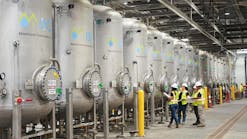NEW YORK, NY, AUGUST 31, 2016 -- The U.S. Environmental Protection Agency has issued an Administrative Order to New York City requiring it to develop a plan to address continued sewer backups into residents' basements and other public and private property. The order gives the city 120 days to submit a plan to EPA for approval to work toward the elimination of unauthorized wastewater releases from sewer backups city-wide over the next seven years.
The order notes that New York City has made progress in responding to complaints in recent years, but it does not have a comprehensive plan to prevent and further reduce the number of sewer backups. The order is designed to ensure that the city prevents sewer backups through a systematic and proactive program, as other large cities have. Raw sewage in people’s homes and in buildings where they work creates health risks, which can be avoided by a proactive strategy to cut sewage backups.
"Since 2012, New York City has taken steps to reduce sewer backups by about 38%. To ensure this trend continues and accelerates, the EPA will require a comprehensive and enforceable plan," said Judith A. Enck, EPA Regional Administrator. "The pressure on sewer systems and the potential for sewer backups will only get worse as the city’s population increases and as climate change results in heavy rain events. Adequate operation and maintenance of New York’s sewer system is critical for the health of New York City’s residents."
Under the order, the EPA will continue to work with New York City Department of Environmental Protection to build on progress already made in protecting residents from exposure to sewage. With regular and proactive maintenance, pipes in problem areas can be unclogged and backups can be prevented.
Sewage contains pathogens, including viruses and bacteria, which can cause diseases when people are exposed to them, including stomach flu and upper respiratory infections. Through its national enforcement initiative, EPA has worked with cities to protect public health through sensible solutions to upgrade and improve water infrastructure.



